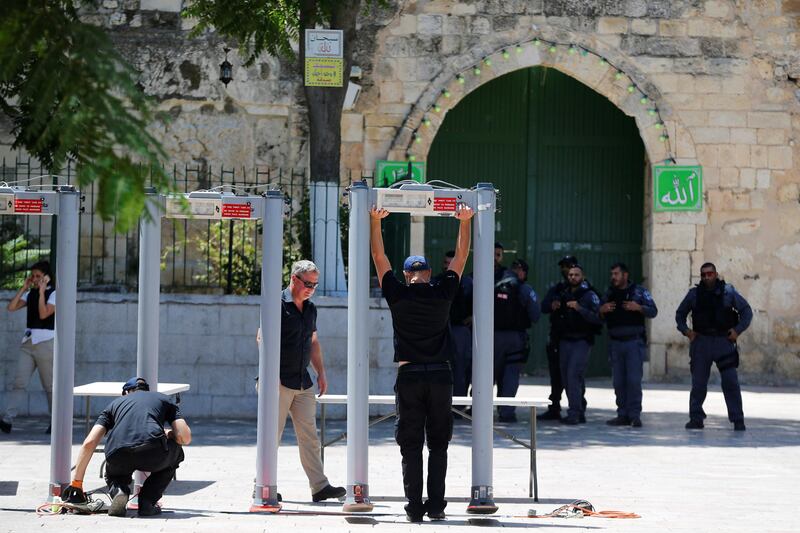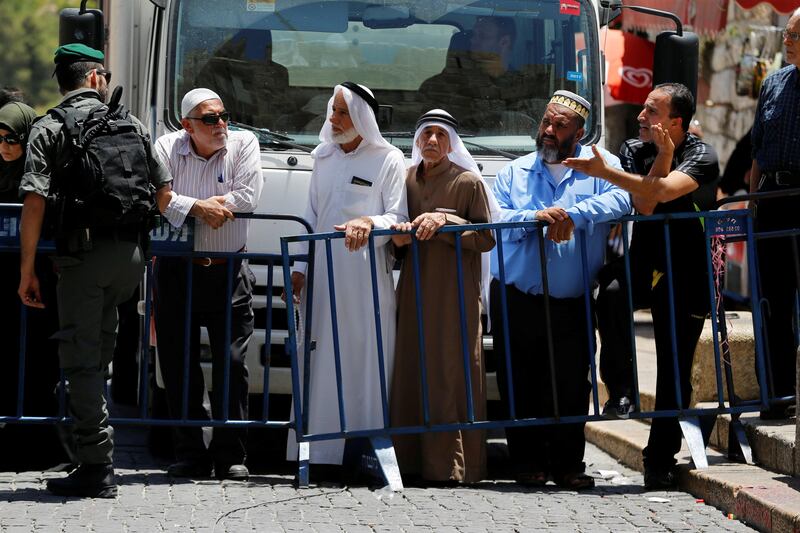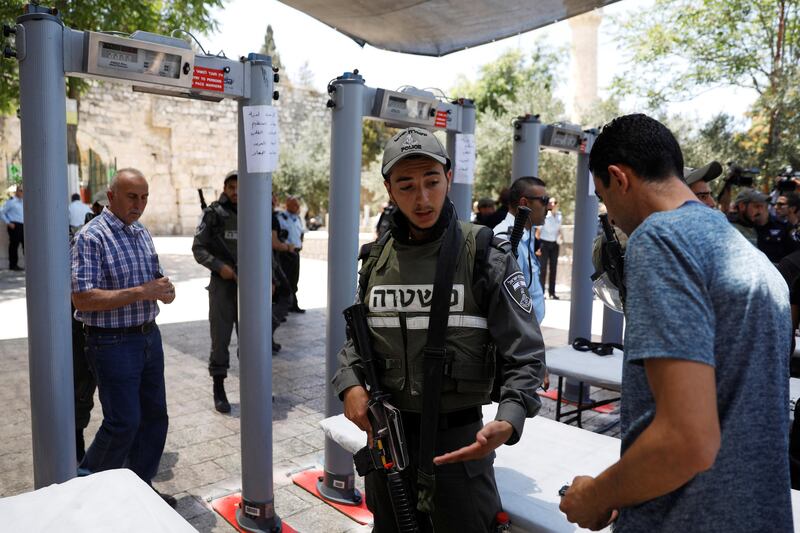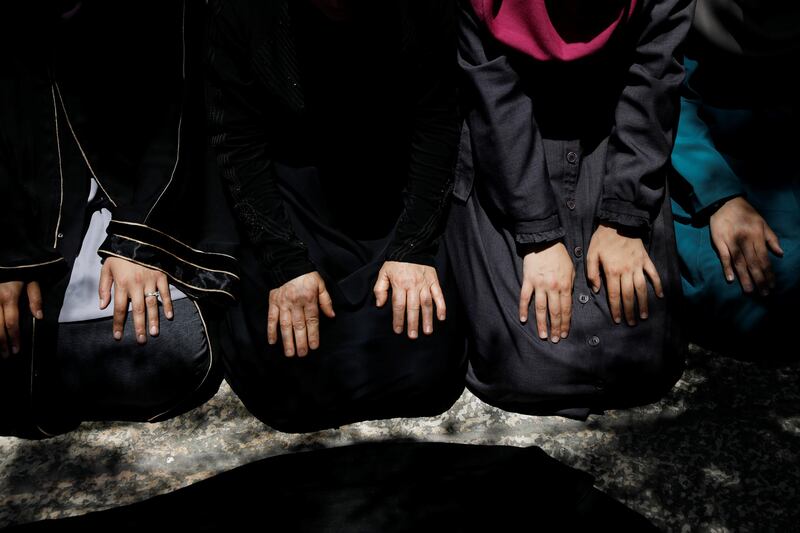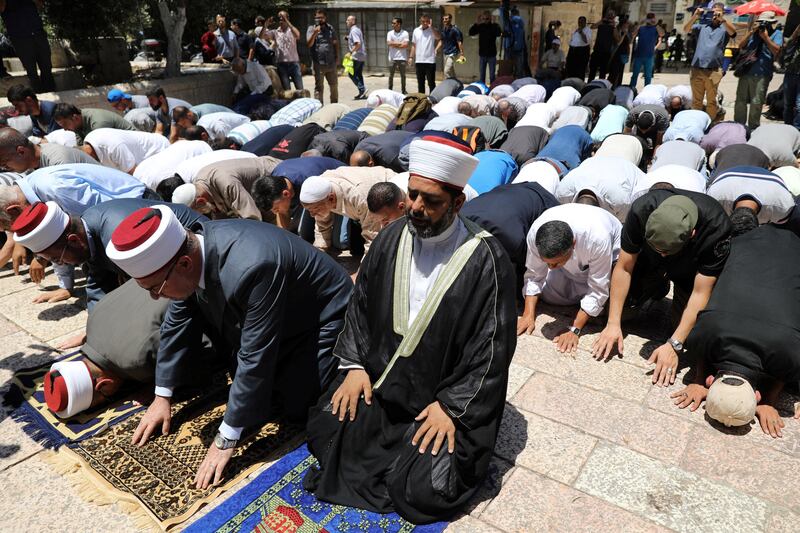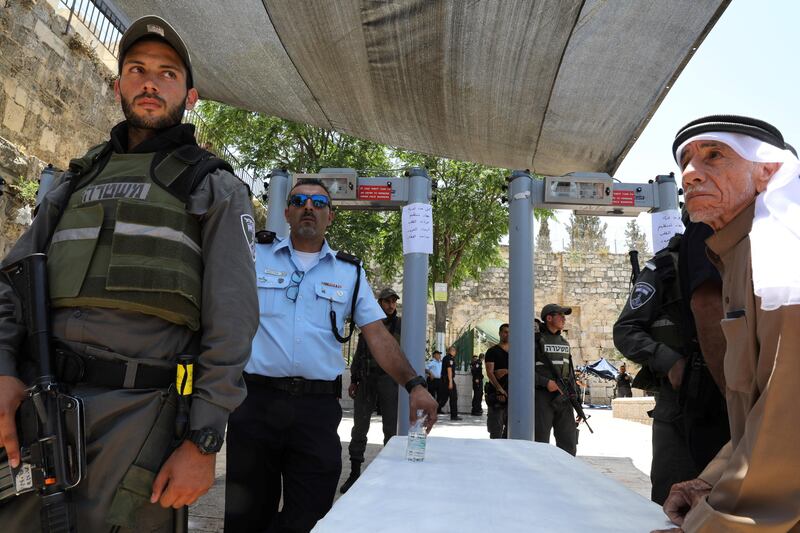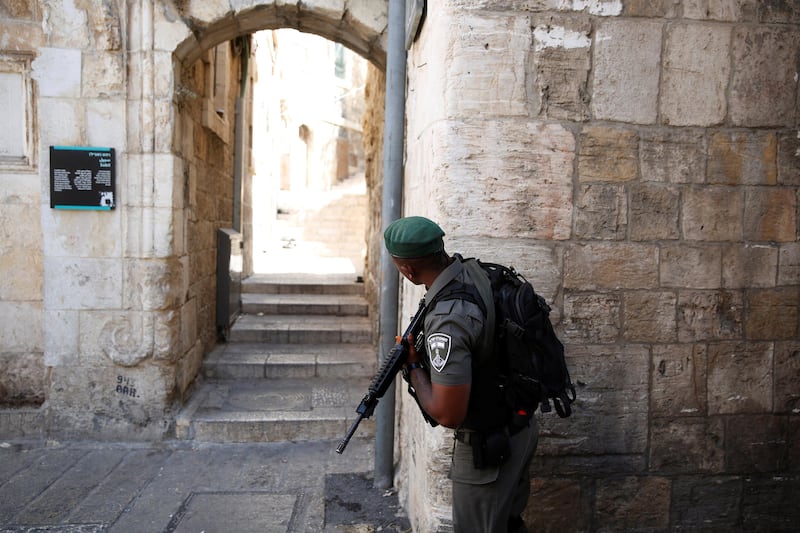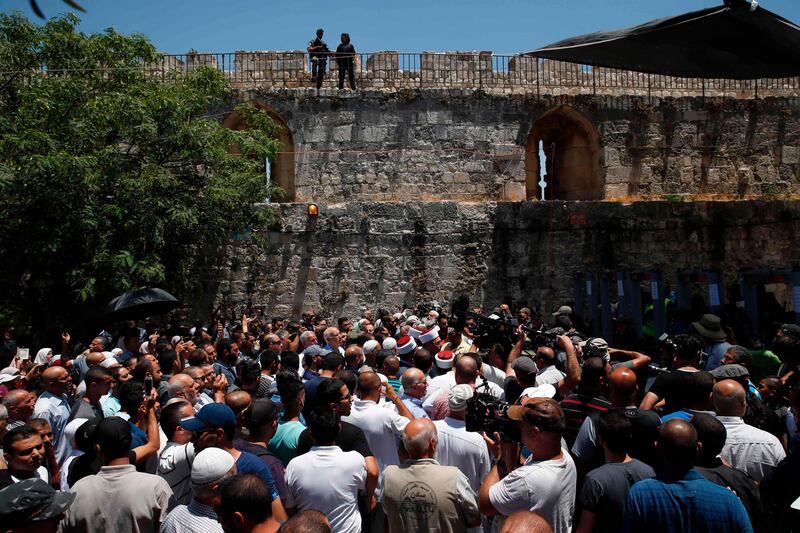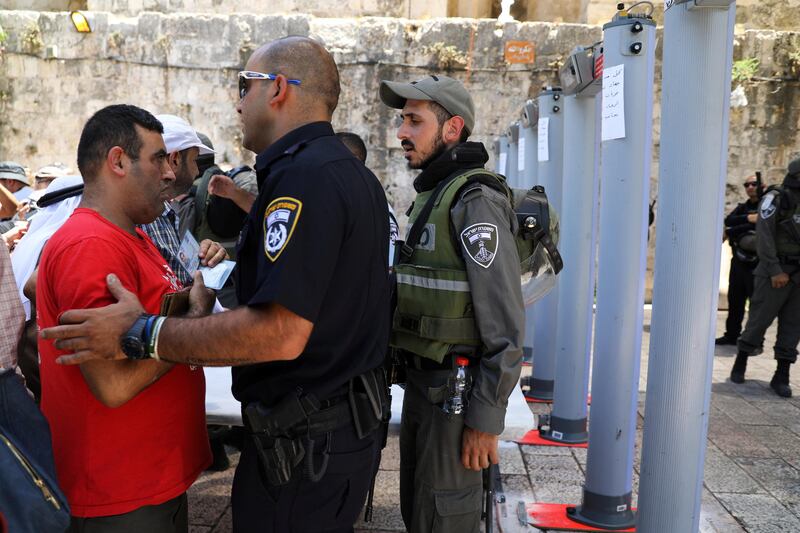The Al Aqsa mosque compound in Jerusalem reopened on Sunday after being closed following a deadly attack, but some Muslims were refusing to enter because of new Israeli security measures, including metal detectors and cameras.
Crowds chanted "Allahu akbar" as a number of initial visitors entered Jerusalem's Haram Al Sharif compound, known to Muslims as the Noble Sanctuary and to the Jews as the Temple Mount. The flashpoint holy site includes the Al Aqsa mosque and the golden Dome of the Rock.
On Friday, three Arab-Israeli gunmen shot dead two Israeli policemen on the outskirts of the site, holy to Muslims and Jews, before fleeing to the compound. They were later killed by security forces in one of the most serious attacks in the area in years.
Israeli authorities said they had come from the flashpoint holy site to commit the attack.
"We reject the changes imposed by the Israeli government," Sheikh Omar Kiswani, Al Aqsa director, told reporters outside the site where midday Muslim prayers were held on Sunday. "We will not enter through these metal detectors."
Some women wailed and cried while telling people not to enter.
Waheeb Liftawi, 52, prayed inside Al Aqsa at midday without knowing of the calls to remain outside. During prayers later in the afternoon, however, he prayed outside.
"These things should not be put in front of a place of worship, a mosque," he said. "This is why we refuse this or this will become the status quo."
Later in the day, a funeral procession sought to enter with a coffin but was not allowed through.
Israel took the highly unusual decision to close the Al Aqsa mosque compound for Friday prayers, triggering anger from Muslims and Jordan, the holy site's custodian.
The site remained closed on Saturday, while parts of Jerusalem's Old City were also under lockdown.
Israeli authorities said the closure was necessary to carry out security checks and announced it would reopen the compound on Sunday.
Two of the nine gates to the site were back in operation on Sunday — equipped with metal detectors — in what Israel described as a gradual reopening.
The Haram Al Sharif is central to the Israeli-Palestinian conflict, with Palestinians fearing Israel may one day seek to assert further control over it.
It is located in east Jerusalem, occupied by Israel in 1967 and later annexed in a move never recognised by the international community.
The sacred site is the third-holiest in Islam and the most sacred for Jews.
The site has proved a tinderbox in the Israeli-Palestinian conflict in the past. Under the status quo agreement, which prime minister Benjamin Netanyahu pledged on Saturday to continue to uphold, Jews are allowed to enter the compound under close supervision, but only Muslims are permitted to worship there.
Leaders of the Muslim religious trust that runs the site urged worshippers not to pass through the metal detectors, describing them as a violation of a delicate status quo with Israel and held a prayer service next to the devices instead.
Several Palestinians ignored the call, while at the second entrance more people headed into the compound. Police said 200 people had entered some 90 minutes after the reopening.
Palestinians want East Jerusalem as the capital of a state they seek in the occupied West Bank and the Gaza Strip. Israel views all of Jerusalem as its capital, a claim that has not won international recognition.
In a move promoted by an ultranationalist political party, an Israeli cabinet forum on Sunday approved a bill that would require any territorial handovers in East Jerusalem to be ratified by at least 80 of parliament's 120 members.
Legal analysts noted, however, that if the law is adopted by parliament — where it now goes for a series of votes — it can be overturned in the future by a majority of 61 legislators.
